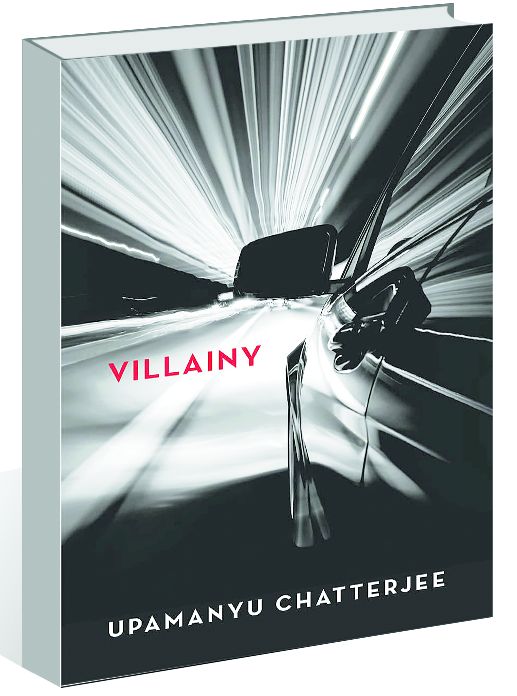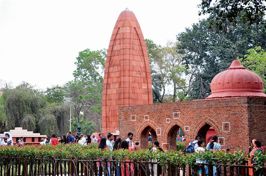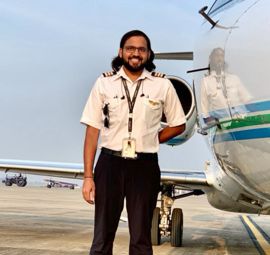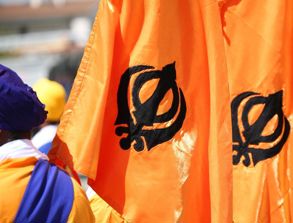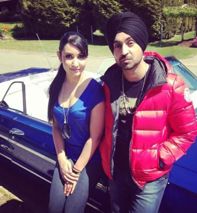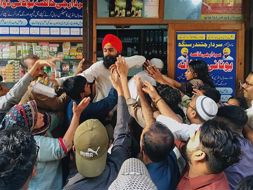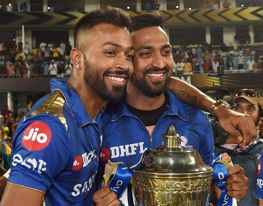Villainy by Upamanyu Chatterjee. Speaking Tiger. Pages 336. Rs699
Book Title: Villainy
Author: Upamanyu Chatterjee
GJV Prasad
Upamanyu Chatterjee is by far our most significant novelist in English. A master of dark comedy (thank God for the comedy), he shows us the ways of our world, of our country. This, his seventh novel, begins like a detective novel, a thriller, and you think that some of the bestselling writers of the genre can take lessons from him. The first chapter leads you to make mild, tired comments about police probity and procedure, and middle-class behaviour. While applauding the particularity of Chatterjee’s writing, his attention to detail, the chapter’s ending leads you even more deeply into the world of his novels — this dysfunctional India of ours. This is not to say it is not a thriller — it is one and will have you engrossed till the last page. This is a novel, after all, about crime(s) and retribution, about the villainy in all of us, including the systems we ought to believe in.
The novel that begins with the discovery of a body in a park (a typical Delhi park with walkers and yoga practitioners and people practising laughter therapy) is about how it got there, the story of past crimes and victims and survivors. This is a novel about money and privilege, how much money rules in our country and what all it can presume to buy. This is a story of Delhi, the leading city of the country in everything. It is the story of a spoilt brat, Pukhraj, who is the heir-apparent to Nemichand Saraf, who has a flourishing jewellery business. Pukhraj expectedly does drugs, loves cars and gambles. He also packs his father’s illegal gun to show the world who is boss. This is, of course, a toxic mixture with murder and mayhem waiting to happen (as it did in living memory in a couple of cases with such children from such families in Delhi).
What is unexpected is the close relationship, almost friendship, between Pukhraj and his driver’s son, Parmatma. This leads to the necessary complication in the story, since what Pukhraj lacks is a sense of responsibility and Parmatma has it in loads. They are a study in contrasts — one rich, the other poor; one a dropout, the other studious; one adept at stealing from his own lawless family, the other law-abiding and having great regard for his father. But unlike a Bollywood movie, it is not that the rich are evil and the poor are good as much as that everyone does what they have to do to survive, and very often this means to participate in the illegal, the unethical, and the villainous (or to be complicit in this).
Pukhraj commits two murders to begin with (a dog is also killed the second time); Parmatma is on the scene on the later occasion, trying to wrest the gun away from Pukhraj. He has the gun in hand when the police arrive. The murder sequence begins because a bus turns from the wrong lane and hits his father’s Mercedes that he has taken for a joy-ride. What was his gun for if not to exact revenge? He calls Parmatma to get him out of the scrape somehow but it is clear he has to kill the boy (whom he had kidnapped) who witnessed the shooting. You can guess how this was going to turn out in the courts or what the Sarafs would have worked (spent money) and hoped for.
Obviously, the Sarafs are god-fearing, godmen-fearing, and morally bankrupt. The father is abusive, insensitive, uncaring, and has a mistress tucked away quite prominently. Pukhraj’s mother Ghazal’s pastime is shoplifting, and she takes Pukhraj along on these expeditions. The novel is about what money can buy for Pukhraj in court and in prison. It is about the 19 years that pass from the first murder till a body is found in the park at the beginning of the book. There is one more murder, an attempted murder and a death in between. This is a beautifully crafted book, one that is a must-read for all Indians, at least all who are interested in our country.






